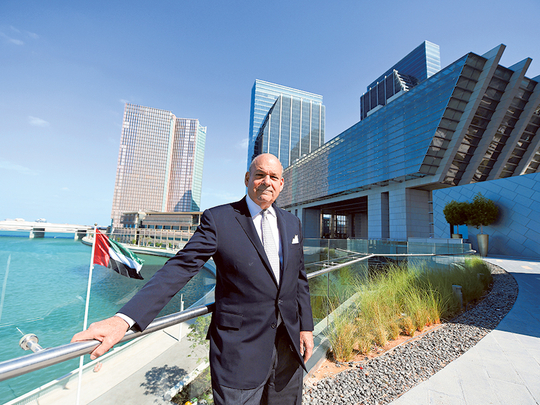
Dubai: The concept of malls as destinations where all your shopping needs are met is passe. In fact, it’s so last century. Even if developers and their architects were to add elements of leisure and entertainment to the mall mix, there is an outdated feel about it. These days, mega-malls have to play at being more than just big.
“The problem with most malls is that they are inward-looking fortresses... They stand alone with no outside connection,” said Howard Elkus, Co-founding Principal of Boston based Elkus Manfredi Architects and the creative mind behind Abu Dhabi’s in-development Al Maryah Central. “The view from many in the US is that the conventional shopping mall is dead — we have rethought how retail works here.
“What malls and shopping destinations need to get right is this — developers must create a development that is right for the people of the city. If you get that right, people will come.”
“When you design a project like this, you begin with place-making and the human experience. Connectivity is a big thing for us, both inside and outside.
“This is not just about making people feel at home with their surroundings or the design, but making sure people feel comfortable navigating through a development and with ease.”
Space and scale are certainly no constraints at Al Maryah Central, a 2.3 million square feet development that is to open in 2018. But it is the connectivity Al Maryah Central will have with the existing — and upscale — Galleria mall (258,000 square feet) and ADGM (Abu Dhabi Global Market) that will add to the already impressive proportions.
This is why connectivity is so central to the way Elkus has designed Al Maryah. “We want to bring the outside in by connecting the rest of the (Al Maryah) island to Al Maryah Central and inside the development, by creating streets of shops and pedestrian walkways that allow visitors to move seamlessly through the development,” said Elkus.
“We created a mixed-use development that will, like a city, have walkways, a family entertainment centre, a sports-driven venue, restaurants, a mosque, a 20-screen cinema and a rooftop park. This is called ‘place-making’ — where every development needs a social component.”
“A major connection will be to The Galleria and ADGM, celebrated in the central atrium that extends the vista through The Galleria’s great room to Abu Dhabi’s downtown skyline and the waterfront promenade.”
Once complete, the mall will host 400 stores with US uber-department stores Macy’s and Bloomingdale’s having prime locations by way of being anchor tenants. It will be the first Macy’s and second Bloomingdale’s in the UAE. The latter is an anchor at The Dubai Mall.
Special detailing has been given in the architectural plans for the anchor stores. “Each store will anchor a unique atrium with its own character — Bloomingdale’s will merge with the adjoining hotel’s food and beverage, shops and exterior gardens, terraces and pool,” said Elkus. “The Macy’s atrium will have much more of a focus on fashion, with shows and entertainment.
“It will also have its own rooftop complete with a park and surrounding rooftop restaurants. We see the Macy’s rooftop as being its own experiential destination within Al Maryah Central — we see this space having organic food markets, live cooking stations, pop-up restaurants and more. We will have our own community on the island.”











